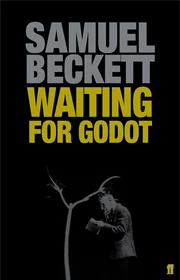
“Waiting for Godot” is a play by Samuel Beckett where two characters, Vladimir and Estragon, engage in conversations while waiting for someone named Godot, who never appears. The play explores existential themes, the passage of time, and the uncertainty of their situation without revealing the ultimate outcome. The repetitive and open-ended nature of the narrative invites contemplation on the absurdity of human existence.
Read Waiting for Godot Flipbook:
Listen to Waiting for Godot Audiobook:
Title: “Waiting for Godot”
Author: Samuel Beckett
Genre: Absurdist Drama
Publication Year: 1953 (French), 1954 (English)
Main Characters: Vladimir and Estragon
Plot: The play revolves around Vladimir and Estragon waiting for someone named Godot, exploring existential themes and the futility of human existence.
Key Features: Repetitive dialogue, open-ended narrative, and enigmatic atmosphere.
Notable Aspects: Considered a classic in absurdist literature, reflecting on the human condition and the meaning of life.
Impact: Influential in theater, sparking discussions on existentialism and absurdism.
Language: Originally written in French, later translated into English by the author.
Minimalist Setting: The entire play takes place on a barren stage with only a tree, emphasizing the simplicity and isolation of the characters’ existence.
No Clear Answers: Beckett was known for being cryptic about the meaning of the play, stating that if he knew who Godot was, he would have said so in the play.
Title Ambiguity: The name “Godot” is never explained or defined in the play, leaving the identity and significance of the character open to interpretation.
Influences: Beckett’s experiences during World War II and his work with the French Resistance influenced the play’s existential themes.
Absurdist Movement: “Waiting for Godot” is a cornerstone of the Theater of the Absurd movement, challenging traditional dramatic conventions and exploring the absurdity of human existence.
First Rejection: The play was initially rejected by several directors, but eventually, it found success and became a landmark in 20th-century drama.
Enduring Legacy: “Waiting for Godot” continues to be widely studied, performed, and adapted, showcasing its enduring impact on literature and theater.